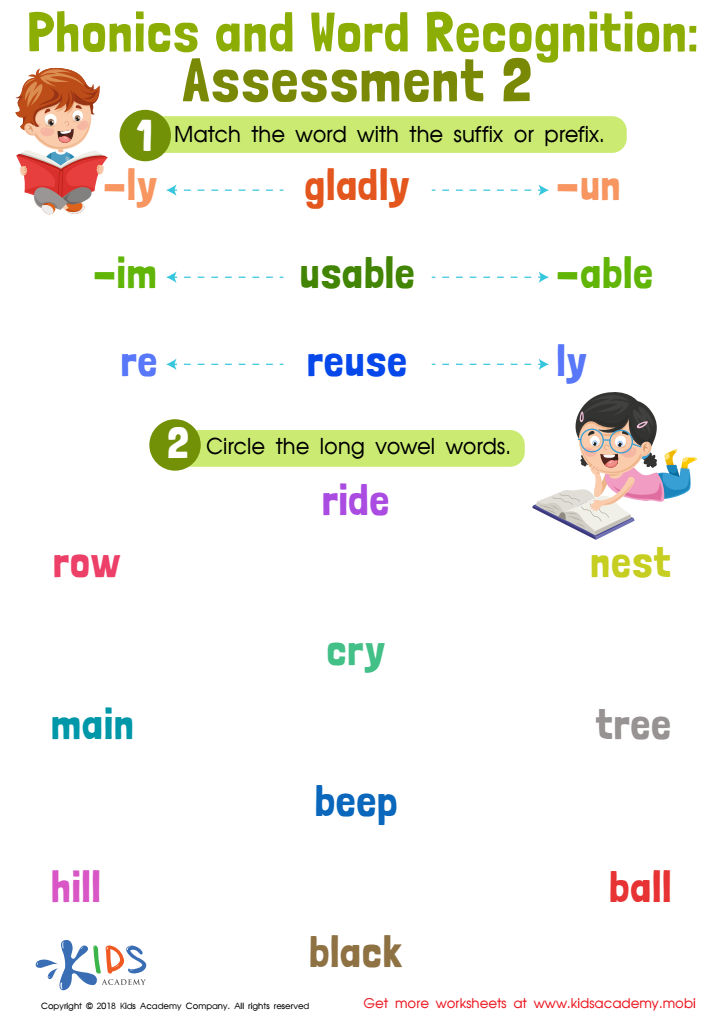Alphabet worksheets activities for 8-Year-Olds
5 filtered results
-
From - To


Phonics and Word Recognition: Assessment 3 Worksheet


Phonics and Word Recognition: Assessment 2 Worksheet


Phonics and Word Recognition: Assessment 1 Worksheet


Phonics and Word Recognition: Assessment 2


Phonics and Word Recognition: Assessment 1 Worksheet
Alphabet worksheets activities are an indispensable tool in the foundational stage of a child's educational journey. Engaging young learners with these activities not only introduces them to the basics of the English language but also hones their reading and writing skills at an early age. Alphabet worksheets activities offer a structured and fun approach to learning, making the acquisition of each letter's shape, sound, and usage a delightful experience.
One of the primary benefits of alphabet worksheets activities is their ability to enhance letter recognition. Through repetitive practice and varied exercises, children become familiar with the alphabet in both uppercase and lowercase forms. This recognition is crucial for decoding words and paves the way for fluent reading. Moreover, these activities are designed to improve fine motor skills. As children trace letters, color them, and engage in cut-and-paste tasks, they develop the hand-eye coordination necessary for effective handwriting.
Furthermore, alphabet worksheets activities foster phonemic awareness. They introduce the concept that letters are symbols that represent sounds, a foundational skill for spelling and reading. By associating sounds with specific letters, children can begin to blend sounds to form words, an essential step in becoming proficient readers.
In addition to cognitive benefits, alphabet worksheets activities offer flexibility and creativity in teaching. Educators and parents can select from a variety of worksheets that cater to the learning style and pace of each child. Whether it's through matching games, puzzles, or themed worksheets, children can explore the alphabet in ways that are both educational and entertaining.
In conclusion, alphabet worksheets activities are a vital resource in early childhood education. They lay the groundwork for literacy by making the learning process engaging, comprehensive, and adaptable to individual needs. By integrating these activities into their teaching methods, educators and parents can ensure a solid start for children on their path to reading and writing proficiency.

 Assign to My Students
Assign to My Students
















